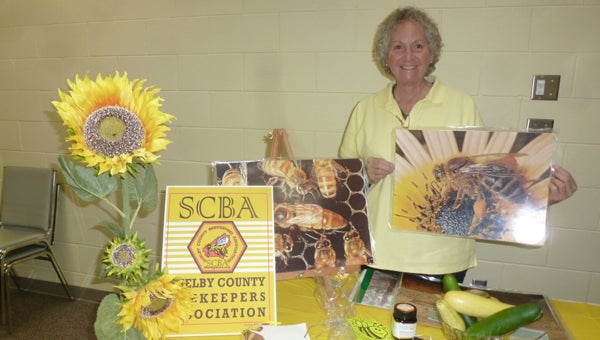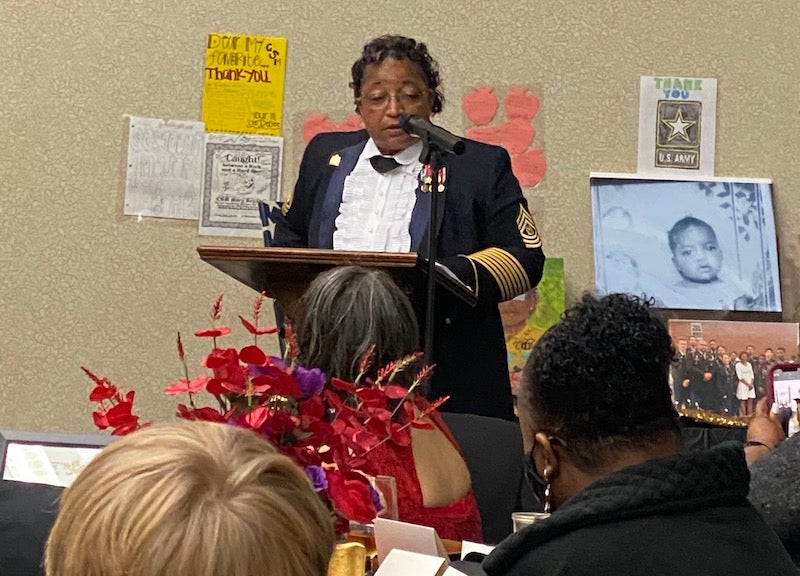Master Beekeeper Robertson is honey bee expert
Published 10:52 am Wednesday, January 20, 2016

Master Beekeeper Margie Robertson of Vincent spoke at the Columbiana Public Library about the importance of the honeybee on agriculture and the Colony Collapse Disease that is affecting it today. (Contributed)
By PHOEBE DONALD ROBINSON / Community Columnist
Master Beekeeper Margie Robertson of Vincent recently gave a fascinating program on “The Importance of the Honey Bee” at the Columbiana Public Library.
The program, sponsored by the Friends of the Columbiana Public Library, was well attended.
“Farmers depend on the honey bee for pollination,” said Robertson. “The market for honey in increasing, but the availability is declining. We lost 40-45 percent of bees in 2015 due to the Colony Collapse Disorder. Bees have two main things against them: Weather and chemicals, especially neonics, a water-soluble chemical that is showing up in surface water and wells. We cannot alter the weather, but we can control our use of chemicals. Neonics are used in most corn and soybeans crops. It is a pretreated seed, the pink stuff on seeds. Fifty-one percent of garden plants found in big box stores have neonics, a key driver in the declining bee population. The Colony Collapse Disorder became known to the public in 2006 when a commercial beekeeper in Florida had 4,000 hives and one day the bees were all gone, just gone. The press found out and reported it. The U.S. Government and state scientists began to start research. The well-kept secret was out, something is happening to the honey bee and no one still knows why.”
Bees are critical for U.S. crops for over 20,000 plants use bees for pollination. Apples, berries, cantaloupes, cucumbers, alfalfa, almonds are some of the $15 million crops that are pollinated by bees.
The U.S. also used over 400 million pounds of honey last year alone. Alabama produced 371,000 pounds of honey in 2015. Since 1990 over 25 percent of the bee population has disappeared. Today the number of hives is at its lowest point in 50 years (Nrdc.org).
“A strong colony has 60,000-80,000 bees,” continued Robertson. “Hives need to face the East and be three feet apart. Honey flows April and May. The queen can live up to five years laying up to 1 million eggs in her life time. Bees love yellow and blue flowers and fly on sunny days. All bee hives need to be registered by law.”
For more information, see Shelbybees.org.








